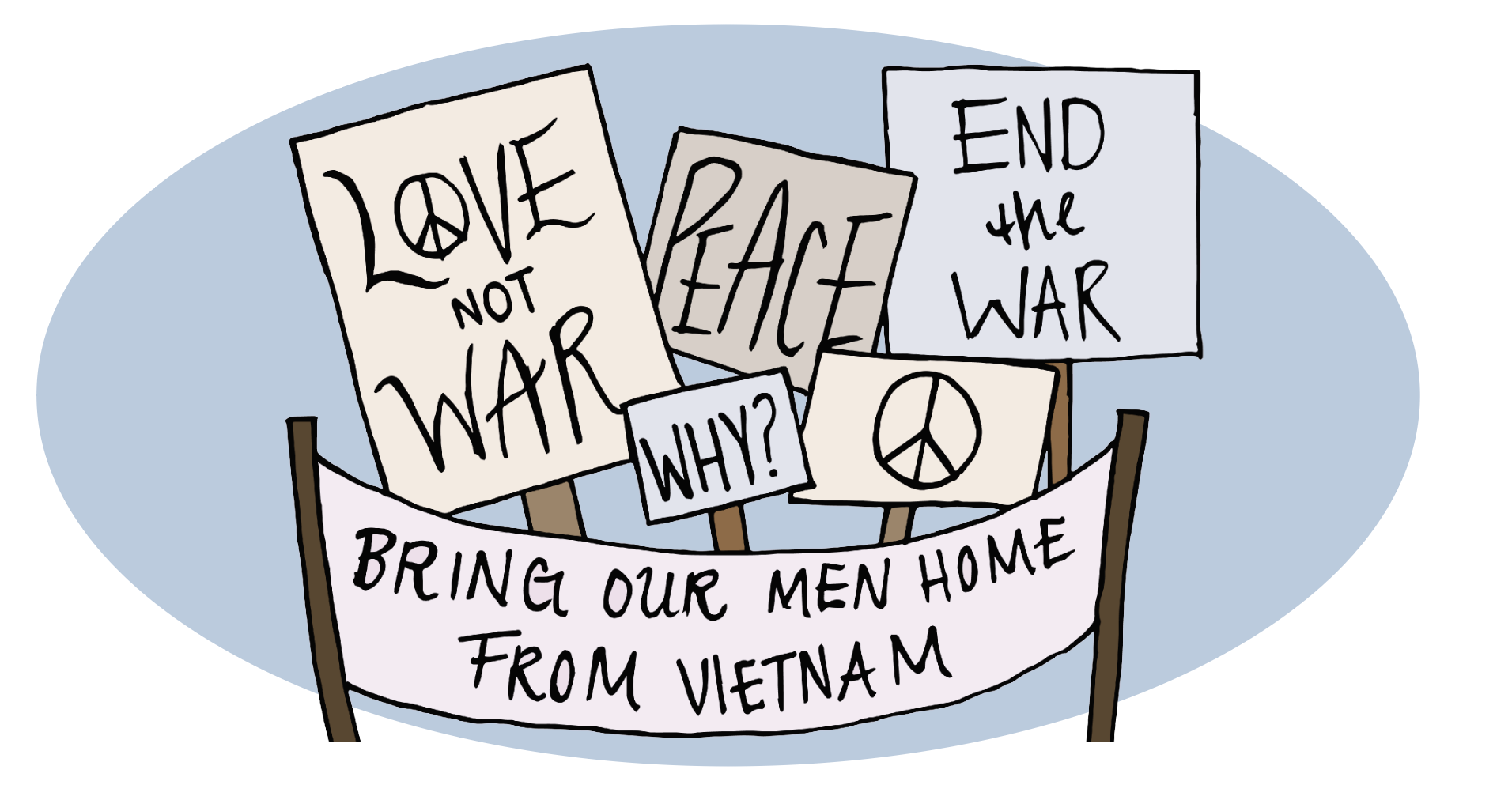The Georgetown Voice helped prepare me for a career in media, and my experiences at the paper taught me great lessons in teamwork, friendship, humility, and gratitude. But more importantly, the paper helped me find my voice and learn how to help others find theirs. These are lessons that have lasted a lifetime.
Marty Yant (SFS ’71) was managing editor of the Voice in 1970, and he wanted to feature liberal and conservative columns on a single page, called “To the Left” and “To the Right.” He was having trouble finding anyone to fill the conservative slot. I’m not sure if he recruited me or I volunteered, but either way, I loved it. I was as opposed to socialism then as I am now, so this was a labor of love. Socialism was chic in the ’60s, just as it is now.
But writing a column every couple of weeks was not enough for me. I wanted to help put the paper out, and Steve Pisinski (COL ’71), the Voice’s first editor-in-chief, was looking for all the help he could get. I remember one night when Steve and I were the only two at the office, writing headlines and photo captions, and he impressed me so much with his kindness, intelligence, and charm. I remember other nights when there were a dozen of us, working together as teammates, relishing our role as underdogs, knowing that we were launching this new campus paper. I don’t think any of us realized how historically significant this was.
After graduating, Steve and I both wound up in California, and we both worked in the communications and media business. When we talked by phone in 2002, we agreed to get together the next time he was visiting Los Angeles, where I lived, or I was visiting San Francisco, where he lived. Steve was a successful executive in public relations, and I was running Creators Syndicate. About a month after that conversation, I heard of his sudden death at age 52. It felt like a punch in the gut. He was such a great man, taken way too early.
When Steve and I would talk and I would refer to him as the original founder of the Voice, he always deflected the praise, saying that if it hadn’t been for Tony Kawas (COL ’71) and Yant keeping the paper going in year two, and Al Di Sciullo (COL ’72) and me (and many others) keeping the paper going in year three, the Voice would have died long ago.
We worked out of an old white two-story house called the O’Gara building. It was torn down in 1984 to make room for new dormitories. Al and I decided to make the Voice a weekly publication, and within a relatively short period of time we overtook The Hoya in readership and circulation.
We looked for stories that would generate controversy and conversations all over campus. We ran fantastic photographs, thanks primarily to John Baldoni, and we printed between 16 and 20 pages every week. In hindsight, going from bi-weekly to weekly was a herculean task.
The big news at the time was the Vietnam War, which nearly everyone on campus opposed, and we ran dozens of articles about the protests that came regularly to the nation’s capital. We ran stories about healthcare, abortion, heroin, methadone, crime on campus, Scientology, prison reform, D.C.’s “gay subculture,” health and fitness, women’s rights, and economic privilege—the latter addressed in a Voice magazine supplement with the headline “The Affluent Student.” In other words, the hot topics then remain timely today.
A group of us would drive to Silver Spring late at night every week to watch the press run, to make sure the printing was clean and clear. Then we’d stop for a late dinner or early breakfast—I can’t remember which. By 5 a.m., the newsstands on campus would have anywhere from 4,000 (our early circulation) to 10,000 copies of the Voice. I spent every Tuesday in those years monitoring the students’ reading habits, making notes about which issues were grabbed the fastest.
I remember feeling such a letdown after I graduated in 1972. My days were spent making copies of reports for senior executives, getting coffee, and running errands. But gradually, I found my footing. I worked in sales, in advertising as a copywriter, in journalism as a reporter and editor at United Press International, in management at the Los Angeles Times Syndicate, and finally in media as president of Rupert Murdoch’s News America Syndicate.
In 1987, almost 15 years to the day that I had completed my year as editor-in-chief of the Voice, I founded Creators Syndicate. We started as a newspaper syndication company and are now a major digital content distributor and book publisher. My son, Jack (COL ’04), is president of the company. Our goal is to find compelling voices (sound familiar?) and distribute them to as many readers as possible throughout the world.
This formula of offering a wide variety of voices worked well 50 years ago at the Voice and still works well at Creators today. It is hard to believe that the Voice has survived a full half-century as a Georgetown institution.
I commend the hundreds of talented student editors, writers, photographers, artists, and critics who have continued to publish a first-rate student newspaper year after year. Each staff member of the Voice did an outstanding job and cumulatively has made it possible for us to celebrate this anniversary. Also, I feel gratitude to the university itself for allowing the Voice to thrive and prosper.
Finally, and probably most importantly, I want to thank the current staff of the Voice, especially because they recognized the significance of this celebration of a half-century of success. Without their vision and hustle—typical of such a strong student newspaper—we would not even be having this conversation.
Rick Newcombe (COL ’72) was Editor-in-Chief in Spring and Fall 1971, and Spring 1972






